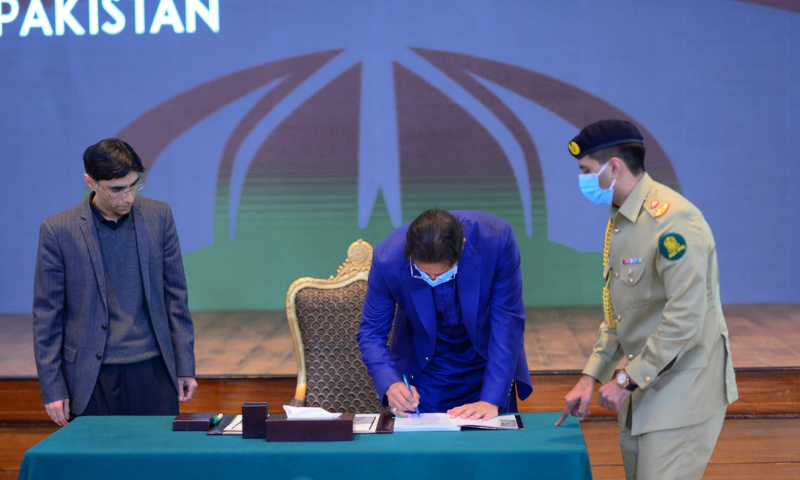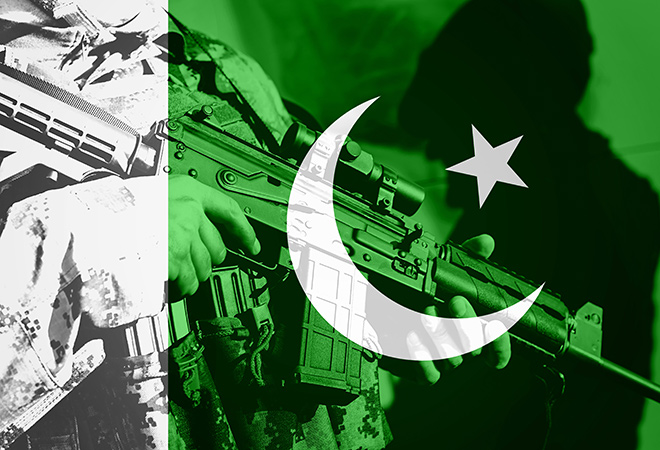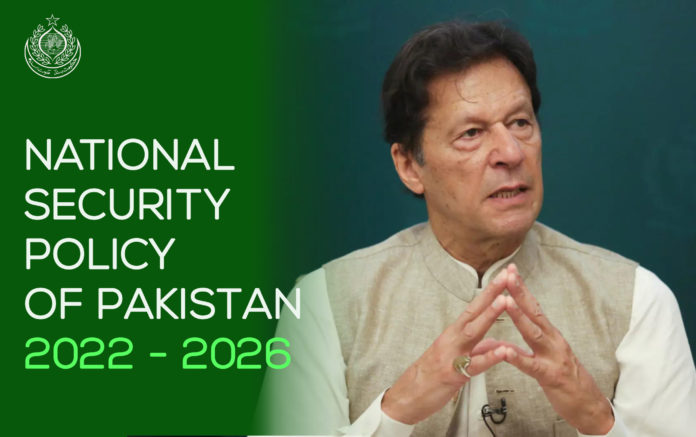In Pakistan, intellectual endeavours especially those emanating from the government are few and far between. Therefore, any governmental work done in that domain should be cherished. Consequently, the recently released National Security Policy its publicly available version anyway should be appreciated.
I have previously written about rebooting the national security framework of Pakistan so that it can be brought in line with recent times and underpin the security and sovereignty of the nation. The Cambridge English Dictionary defines framework as “a system of rules, ideas, or beliefs that is used to plan or decide something”. In the annals of national security, nothing can be further from this truth the national security framework does plan and decide something the nation’s continued and flourishing existence! I had recommended four pillars to this system. The foremost being national identity. Then national purpose and national interests. While national security policy, along with strategies to execute this policy, would be the final pillar of this structure and also refer back to national identity, national purpose and national interests. The critical requirement for the national security framework is that all the pillars should be working with each other in harmony as opposed to acting as contradicting forces. If the latter happens, the national security framework can come crashing down, very quickly and very gravely! In this context, how does the newly announced National Security Policy fare? A bit of hit and miss. Consider the following constructive critique.
National security is a difficult subject to grasp let alone trying to encapsulate it in a distinct policy! The work is not done yet but it has started and one has to start somewhere
To its credit, the national security policy document does touch upon the national security framework on page five. It also talks about a national security vision which is where a galvanising image is presented of a successful future state albeit instead of encapsulating it in one crisp sentence, the document takes half a paragraph to describe the end state. In policy formulation, the general rule of thumb is that vision should be articulated in a succinct sentence so that it is easily imbibed by the population in general and the policy making elite in particular! Later on, there is reference to national cohesion but without any discussion on nationhood or national identity. This is a glaring omission because although national identity maybe a divisive discussion but it is a necessary one to get the national security policy off on the right foot! National identity is an overarching reality for all Pakistanis and must be above ethnic, religious, sectarian, and social divides. And even the national security policy accepts its importance by stating “it is imperative that we reinforce our coherent national identity” but doesn’t go further to clearly define it. In previous op-eds, I had suggested the national identity of a “Muslim yet democratic Pakistan”. This was because while the creation of Pakistan is steeped in religion, the continued existence and further flourishing of Pakistan must be at the behest of all the people living within its borders. To that end, and alternatively, the national identity could also be reflected in a “Pakistani-Pakistan”, allowing all those within its borders to not be differentiated against.
The word “purpose” is mentioned four times in the national security policy document but unfortunately never is it clearly discussed in the context of national purpose. It would have been better if a national purpose was established visibly in the section describing the national security framework. The French don’t call it “raison d’être” reason to exist for nothing! The Pakistani population must be given a purpose before great things are expected of them. If the people of a nation don’t know their common purpose, then existence is futile at best and short lived at worst. The authors of the national security policy need not have gone far to find the national purpose of Pakistan; i.e. the Pakistani Constitution!

The national security policy has done well to add non-traditional security aspects, like country’s economic health and general well-being of its citizens, to traditional security features such as defence, territorial integrity and diplomacy
It establishes the national purpose in the following three beliefs. One, Pakistanis are one united people regardless of race, language, culture, or religion. Two, Pakistan will be a democratic state and society based on Islamic principles of social justice and equality. Three, achieve affluence and happiness for all through the values of democracy, freedom, equality, and tolerance. Although some of this narrative is built in the section called national cohesion but it doesn’t call out national purpose as such and looks towards flowery language, as in almost all the document, rather than a sharply described and worth remembering national purpose.
Although national identity maybe a divisive discussion but it is a necessary one to get the national security policy off on the right foot!
The national security policy has done well to add non-traditional security aspects, like the country’s economic health and general well-being of its citizens, to traditional security features such as defence, territorial integrity and diplomacy. Though, these could have been clearly articulated and enumerated as national interests to make it an easy and logical read. Furthermore, the national security policy document touches upon vital national interests but doesn’t clearly point these out. That should have been made clear and if a more granular level of a prioritisation paradigm made sense, then national interests could have been categorised as survival level, critical, major and minor.
It is also good to see that policy objectives are attached to later sections in the national security policy. One assumes that the objectives in these sections are tied directly to the national interests which are loosely defined in the document as well. If they are contrary then heaven help us!
No policy worth its salt is complete without at least some underlying core strategies that execute the policy objectives. This is doubly so for the national security policy if one wishes to reinvigorate the Pakistani national security framework efficiently. Hence, there needs to be a security strategy which is aligned to and coordinated with the national security policy. This needs to delve into the detail of meeting the internal and external security objectives as prescribed by the national security policy. The implementation component of this strategy should be the various available instruments of statecraft. These should at least include the executive, legislature, judiciary, foreign ministry, defence ministry, interior ministry, education ministry and information ministry. Although National Counter Terrorism Authority (NACTA) is meant to work on counter terrorism and counter insurgency strategy but its capacity could be leveraged to supplement the National Security Division (NSD) to prepare, present, and implement such a national security strategy which is in harmony with the national security policy.

The critical requirement for the national security framework is that all the pillars should be working with each other in harmony as opposed to acting as contradicting forces
However, for that to happen NACTA and NSD or any other organisation that works on the national security strategy will need to be freed from the bureaucratic red-tape which hinders their function and enables tussles of ego with various other security enforcement agencies. I had previously said that the lynchpin in all this will be an empowered and visionary national security advisor as this person will need to be the over-arching owner of the national security strategy. In Moeed Yusuf, I think Pakistan has an individual with the relevant credentials and experience to get this done. Though, he will need help from all quarters of statecraft especially the bureaucracy which is the actual execution arm of the government.
National security is a difficult subject to grasp let alone trying to encapsulate it in a distinct policy! The work is not done yet but it has started and one has to start somewhere. A marker has been thrown down from where with constructive debate, productive feedback and helpful updates this nascent work can reach a stage where dividends will be a plenty for Pakistan. For that start alone, the present dispensation should be commended!




